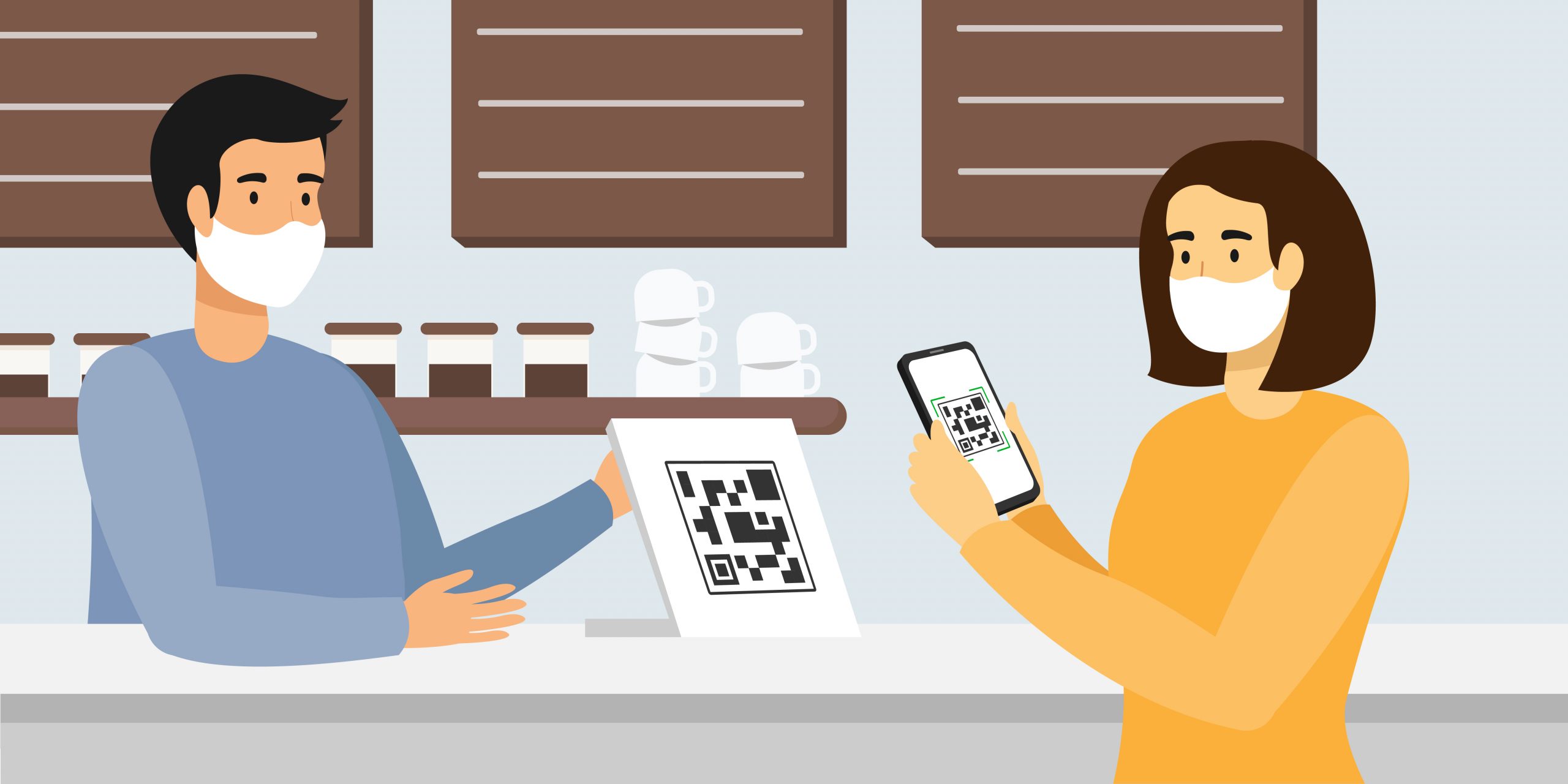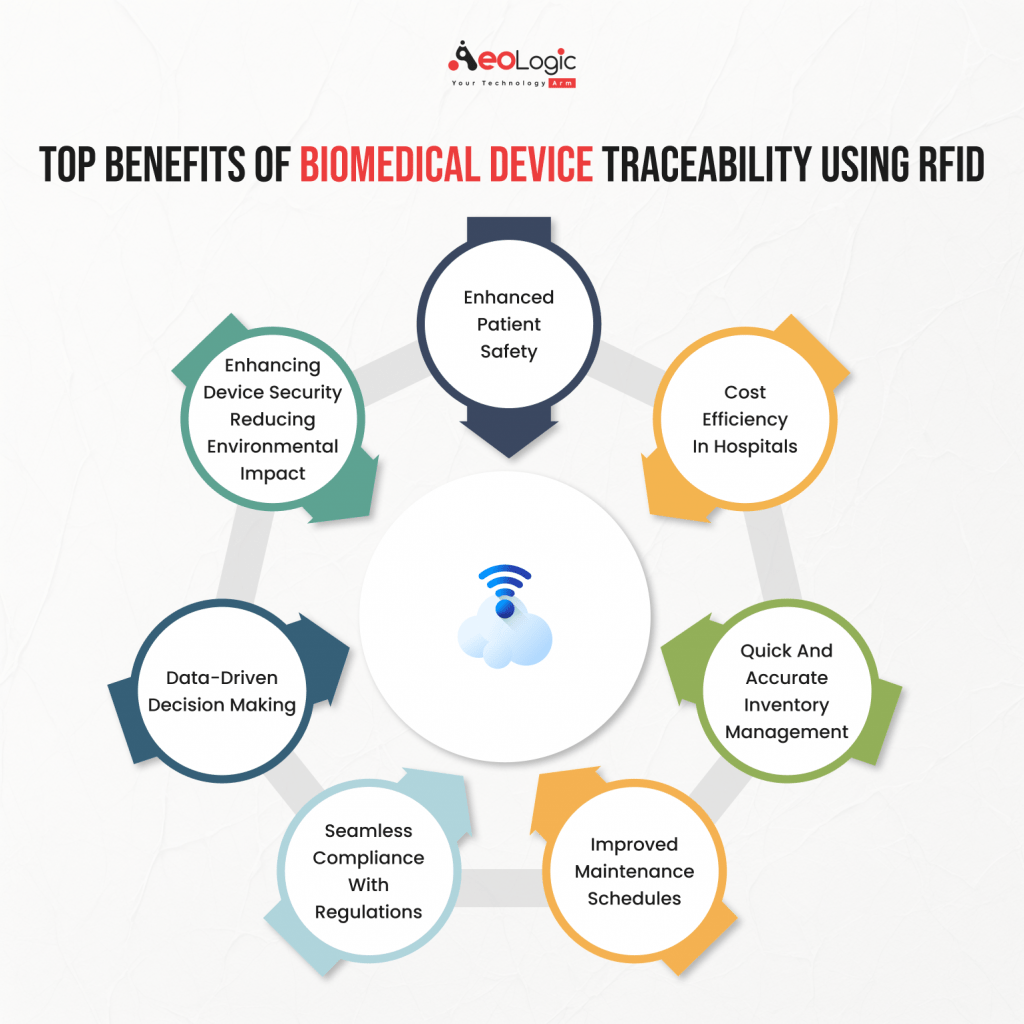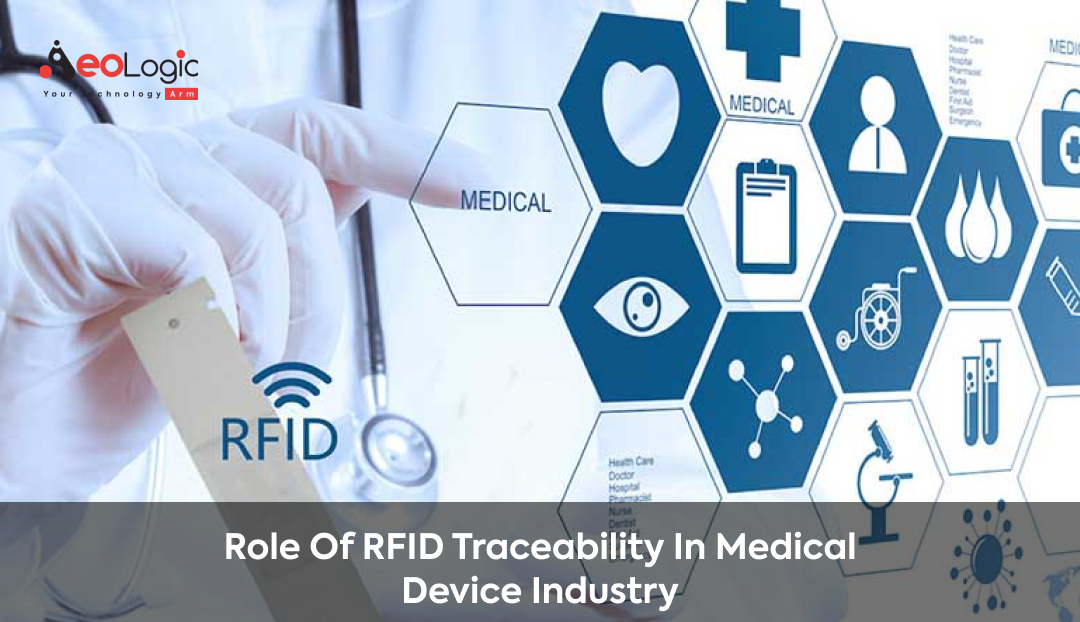Our Journey through the Fascinating World of RFID traceability in the medical device industry So I’ll guide you through how this technology is revolutionizing healthcare. Consider a system in which all the medical devices can be tracked and managed without difficulty. This is the wonder of the RFID technology and it is changing the way we offer our health care services. The following article investigates how RFID is enhancing patient safety, standardizing regulatory compliance and reducing costs in the medical device industry.
What is RFID Traceability?
The abbreviation RFID stands for Radio-Frequency Identification. It is a type of technology that uses electromagnetic fields to automatically identify and track the tags attached to objects. RFID traceability within the medical device industry involves using this technology to monitor medical equipment. In a Nutshell, this Technique Makes it Possible to Follow the Movement of a Device from its Production all the Way through to its Point of Use.
Also Read: Future Healthcare Technology That Will Change the World
Why is RFID Traceability Crucial in Healthcare?

For now, we will stick with why RFID traceability is a revolutionary concept for the health industry. Firstly, it enhances patient safety. Hospitals minimize chances of using wrong or defective materials by accurately monitoring the devices. Secondly, it streamlines inventory management by stocking the right devices at the right time. Lastly, it assists in the enforcement of regulations, a critical aspect in healthcare.
The Impact of RFID on Medical Device Management
The role of RFID traceability in the medical device industry is important. By using RFID tags, hospitals can monitor their inventory easily. The system eliminates incidences of over and under stocking that can be costly and risky. It also helps to rapidly determine the location of devices in a facility, increasing operational efficiency in the delivery of patient care.
Enhancing Patient Safety Through RFID
Introducing RFID traceability in the medical device industry marks a paramount step towards enhancing patient security. It offers various benefits including:
Error Reduction in Device Usage: Helps achieve a higher level of patient safety, such as human errors such as wrongly applying the device in medical procedure.
Tracking Device Sterilization: Helps hospitals to monitor surgical device sterilization process, ensuring that all devices are secure for use on patients.
Managing Device Expiry Dates: It enables them to keep accurate records of the expiry dates of medical devices so that outdated devices or those which can pose risks to the patients are not used.
Recall Management: In the event of recalls, allow for a quick identification and location of affected devices for withdrawal.
Improving Surgical Outcomes: Enhanced Surgical Outcomes and Patient Care by Making Sure the Right Tools Are Always at Hand and in the Best Possible Condition.
Also Read: Information Technology Solutions for Healthcare
Streamlining Regulatory Compliance with RFID
RFID traceability is not just a tool for efficiency but also a key player in ensuring regulatory compliance in the medical device industry:
Automated Record Keeping: Allows for automated and precise device usage and maintenance records, which are essential for corresponding with regulatory requirements.
Enhanced Traceability for Audits: Offers an elaborate traceability of medical devices that simplifies it for healthcare facilities to offer the necessary documentations when audited.
Compliance with Safety Standards: A key demand of regulatory compliance is that all medical devices are safe and the role played towards this.
Real-Time Monitoring: Enables Real-time tracking of compliance of usage and maintenance of medical devices.
Facilitating Recall Compliance: Assists in quick identification and phasing out of devices that do not comply to safety recalls.
Cutting Costs and Reducing Waste with RFID
In the medical device industry, RFID technology is a crucial element in reducing operational costs and minimizing waste:
Optimizing Inventory Levels: Helps in keeping the right stock quantities to lower the costs for holding too much stock or stock out.
Reducing Loss and Theft: RFID systems lowers the rates of loss or theft through tracking devices that can be very expensive to a healthcare facility.
Improving Equipment Utilization: It provides data on usage patterns, which helps reduce unnecessary purchases thereby aiding in optimal utilization of medical equipment.
Decreasing Administrative Overhead: Automating tracking eliminates manual inventory checks, which in turn reduces administrative expenses.
Enhancing Equipment Lifespan: By keeping good tracking and maintenance records, the use of RFID should see the life of medical devices lengthen thus minimizing the frequency at which they are replaced.
Top Benefits of Biomedical Device Traceability using RFID

The healthcare field is characterized by a complex environment, where it has been quite difficult to track biomedical devices, but the use of RFID traceability in the medical device industry simplifies it immensely. That said, it is therefore, important to delve into the benefits of Biomedical Device Traceability using RFID, a technology that is revolutionizing the management and usability of these crucial tools on medical practitioners.

1. Enhanced Patient Safety: RFID solutions minimizes the possibility of losing or mixing up biomedical devices. Such accuracy helps in matching the right device for the right patient hence improving safety of patients too, thus reducing treatment errors.
2. Cost Efficiency in Hospitals: Hospitals can prevent overinvestment or under investment in devices by monitoring device usage. The result would be great cost savings that can be used in other areas of patient care.
3. Quick and Accurate Inventory Management: The use of RFID technology allows to update inventory immediately. It provides real-time tracking that and allows a hospital to hold optimal levels of devices, having them available when required, speeding up the care process.
4. Improved Maintenance Schedules: Biomedical devices require regular maintenance. For instance, the use of RFID tags stores maintenance histories and alerts staff on devices that need servicing. Through this approach to prevent equipment failure and prolonging the life of devices.
5. Seamless Compliance with Regulations: The healthcare regulations require rigorous monitoring and control of biomedical devices. RFID traceability eases compliance, having good and accessible records for audits and quality controls.
6. Data-Driven Decision Making: RFID yields important device utilization data. Hence, hospitals can use this data to make informed decisions with respect to device procurement, usage or retirement leading to an efficient healthcare system.
7. Enhancing Device Security: Additionally, in the control of theft and loss that is associated with expensive biomedical devices can also be supported by RFID technology. Real-time tracking enables the hospitals to quickly locate and secure their assets, making them readily available for patient care.
8. Reducing Environmental Impact: RFID and the environmental sustainability through optimized device utilization and lifespan. Good management implies that fewer became waste and manufacturing new devices consumed less resources.
Also Read: The Importance of Information Technology in Healthcare
Final Words
RFID traceability is critical in the medical device industry. This is more than just a technological advance; it’s a measure to a safer and more effective health system. We are opening doors for better health results for each and every person by adopting this technology.
To learn more about how RFID can change healthcare, reach out to Aeologic Technologies. We’re ready to help you bring this smart tech into your medical work.






